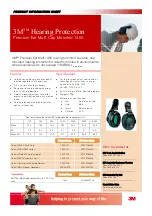
Lisbona
English
05060030 03 30-07-2015
43
11.Defrosting and water draining (Fig. 7)
The Lisbona line of refrigerating cabinets is equipped with two defrosting systems:
- Automatic defrosting with
simple stop
(by means of the stopping of the refrigerating cycle);
-
OPTIONAL
- Automatic
electrical
automatic defrosting (by means of the stopping of the refrigerating cycle
and the use of a hardened electrical resistor in the evaporator).
For the evacuation of the defrosting water it is necessary to:
- provide for a floor drain with a slight incline (Rif. 11);
- install a siphon (standard) between the drainage tube and the floor connection;
- hermetically seal the floor drainage area.
In this way, bad smells inside the cabinet, the leakage of refrigerated air and the possible malfunctioning of
the cabinet due to humidity are avoided.
Note: N.B. Verify periodically the perfect efficiency of the hydraulic connection by turning to a qualified
installer
12.Lighting (Fig. 4)
The lighting inside the cabinet is obtained using OSRAM 76 type deluxe fluorescent bulbs.
The light switch is found on the side of the overhead light (Ref. 5).
13.Night blind - optional - (Fig. 8 - Fig. 9)
To avoid useless leakages of cold and to guarantee the hygiene of the stock displayed during the nightime,
manual or motorised night blinds are available as optionals.
The movement of the night blind, if motorised, is adjusted during testing.
For the correct functioning of the cabinet, the lowest part of the night blind must maintain a distance of about
10mm from the suction plate, it must neither rest on nor go past this limit.
The switch for the motorised blind is found at the side of the light switch (Fig. 4 Rif. 6).
Manual night blind assembly instructions (Fig. 8)
There are two models of night blind (Mod.1, Mod.2); the assembly, however, remains the same:
- Fix the blind supports
1
(
A
).
- Load the spring turning the flat pin in a clockwise direction, keeping the blind still so that the triangle on the
cap of the tube is high up (with the point down) (
B
).
- Insert the flat pin
7
in the blind support. If users want to use the automatic stop so that the blind stops on
each turn, the flat pin must be inserted in the position with "UP" positioned high up (
B
).
If the blind is assembled in a different position from this, the automatic stop is disconnected.
- Position the blind fastening 3 on the pin, insert it into the blind support and rotate it 90° (
C
)
CAUTION: Remove the stop-lever 9, where present, before use.
Motorised night blind assembly - canalised (Fig. 9)
1 - Insert the right-hand 90° lock (7) rotating it until it blocks in the rectangular seat (A) made on the support box.
2 - Insert the washer 13 on pin (B)
3 - Insert the left-hand canalised blind on the right-hand one using the pin (B).
4 - Insert the left hand 90° lock in the box site rotating it until it blocks in the rectangular seat (A) made on
the support box.
14.Lamp replacement (Fig. 4)
To replace the lamp, follow the instructions below:
- Disconnect power to the cabinet;
- Turn the protective case and the lamp by approx. 90° (Rif. 7) (until it clicks) and extract them from the lamp
base by pulling them downwards;
- Remove the caps, pull out the lamp from the protective case and replace it with a new one;
- Restore the caps, making sure that the contacts are correctly housed in the relevant holes;
- Reposition the lamp assembly and the case in the lamp base and turn it by 90° until it clicks;
- Restore power supply.
Indicative table for spring unit loading
Manual blinds width
< 1250 mm
>1250
Preload recommended (with material rolled up)
20 - 30
25 - 30
Max load springs (with material completely unrolled)
50
55
















































